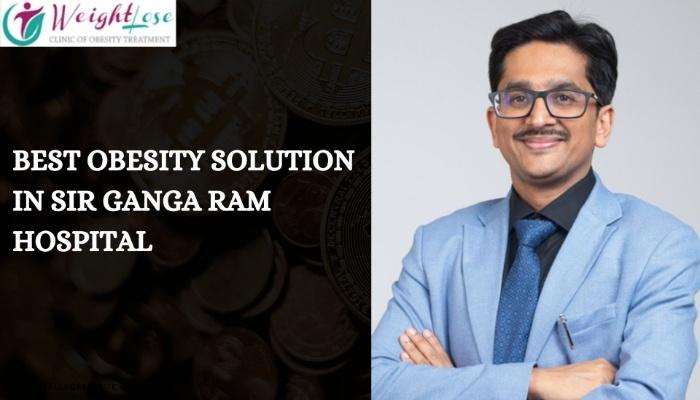How to decide whether you need weight lose surgery?

In India, rising urbanization, sedentary lifestyles, calorie-dense diets, and genetic predispositions have driven an obesity epidemic, especially in large cities. In such a context, having access to a top-tier institution and a surgeon who can deliver safe, effective, and durable obesity solutions is critical.
This article focuses on what is widely regarded as the best obesity solution at Sir Ganga Ram Hospital, under the care of Dr. Tarun Mittal, a leading surgeon in bariatric and laparoscopic surgery. We will examine why this offering stands out, what techniques and practices are used, how patient care is structured, the outcomes, risks, and what patients must know before undertaking treatment.
How to decide whether you need weight lose surgery?
If a patient is considering the Best Obesity Solution in Sir Ganga Ram Hospital with Dr Mittal, they should ask the following:
-
What is my BMI and obesity class?
Generally, candidates have A BMI≥ 35 kg/m² with comorbidities or ≥ 40 kg/m² without comorbidities. Some centers accept a BMI of 30–35 with metabolic disease. -
Do I have treatable comorbidities?
Conditions like diabetes, hypertension, sleep apnea, dyslipidemia, and fatty liver may respond well after surgery. -
Have I tried conservative therapies?
Surgery is often offered when diet, exercise, medications, and other therapies have failed. -
Is my general health good enough?
Cardiac, pulmonary, renal, liver, and other organ functions must be stable or optimizable. -
Am I psychologically ready?
Must understand lifestyle changes, risks, adherence needs, and have realistic expectations. -
Do I have support and willingness for long-term follow-up?
-
Which procedure is suitable for me?
The surgeon should explain options, pros/cons, and why a certain procedure is recommended. -
What is the cost, and is insurance or financial support available?
By asking these questions, a prospective patient can determine if they are appropriate candidates for the surgery offered under the “Best Obesity Solution in Sir Ganga Ram Hospital.”
Potential Challenges and How Dr Mittal Addresses Them
Challenge: Patient noncompliance or dropout
-
Solution: Strong counseling, patient education, motivational interviewing, frequent follow-up, and support groups.
Challenge: Weight plateau or regain
-
Solution: Early detection, review diet/exercise, behavior therapy, consider pharmacotherapy, or revision.
Challenge: Nutritional deficiencies
-
Solution: Routine monitoring, tailored supplementation, patient education about diet, and periodic checkups.
Challenge: Managing comorbidities
-
Solution: Coordination with endocrinologists, cardiologists, and pulmonologists — careful monitoring through the program.
Challenge: Surgical complications
-
Solution: Experienced surgical technique, backup protocols, monitoring, prompt intervention, and complication audits.
Challenge: Long-term funding or affordability
-
Solution: Transparent cost structure, financial counseling, insurance coordination, or payment plans.
Challenge: Distance and follow-up for non-local patients
-
Solution: Telemedicine, remote monitoring, partnerships with local physicians for interim checks.
By embedding measures to anticipate and manage these challenges, Dr Mittal’s program can uphold its claim as the Best Obesity Solution in Sir Ganga Ram Hospital.
Types of Obesity / Bariatric Treatments Offered by Dr. Tarun Mittal
1. Sleeve Gastrectomy
-
Procedure: Removal of a major portion of the stomach, leaving behind a small, sleeve-shaped stomach.
-
Purpose: Reduces stomach capacity and influences hunger hormones such as ghrelin, leading to reduced appetite.
-
Indication: Ideal for patients with moderate to severe obesity; often preferred for its simplicity and effectiveness with fewer anatomical changes than bypass surgery.
2. Gastric Bypass Surgery (Roux-en-Y Gastric Bypass)
-
Procedure: Involves creating a small stomach pouch and rerouting a portion of the small intestine, allowing food to bypass part of the digestive tract.
-
Purpose: Provides both restrictive and mild malabsorptive effects, leading to significant weight loss.
-
Indication: Recommended for patients with obesity combined with metabolic conditions like diabetes or those requiring extensive weight reduction.
3. Mini Gastric Bypass
-
Procedure: A simplified form of the traditional gastric bypass using a single gastro-jejunal loop.
-
Purpose: Reduces surgical time and complexity while achieving effective results.
-
Indication: Suitable for patients needing a bypass with shorter surgery duration or those seeking a balance between safety and weight-loss efficiency.
4. Adjustable Gastric Banding (Lap-Band Surgery)
-
Procedure: Placement of an adjustable band around the upper part of the stomach to limit food intake.
-
Purpose: Restrictive in nature, leading to gradual and controlled weight loss.
-
Indication: Often selected by patients preferring a less invasive and reversible approach, or those with lower BMI levels.
5. Revision Bariatric Surgery
-
Procedure: Performed on patients who have previously undergone bariatric surgery but have not achieved the desired weight loss or have developed complications.
-
Purpose: Corrects anatomical or functional issues or addresses weight regain.
-
Indication: Suitable for cases involving band slippage, insufficient weight loss, or intolerance to previous procedures.
Additional Non-Surgical / Supportive Treatments
1. Lifestyle, Diet & Nutritional Counseling
-
Offers personalized dietary plans focusing on portion control, balanced nutrition, and sustainable lifestyle changes.
-
Provides guidance on eating behavior and long-term maintenance of a healthy weight.
2. Behavioral & Psychological Support
-
Addresses the emotional and psychological aspects of obesity, such as emotional eating and motivation challenges.
-
Encourages behavioral modification and adherence to healthy habits for lasting results.
3. Monitoring & Follow-Up Care
-
Conducts regular postoperative check-ups to monitor weight loss progress, nutritional status, and overall well-being.
-
Focuses on preventing deficiencies, managing complications, and ensuring long-term success of the treatment.
4. Minimally Invasive & Robotic Techniques
-
Utilizes advanced minimally invasive laparoscopic and robotic approaches to enhance surgical precision.
-
Benefits include:
-
Reduced pain and scarring
-
Faster recovery times
-
Shorter hospital stay
-
Improved surgical accuracy
-
Conclusion
Obesity is a complex, chronic, multisystem condition that demands a holistic, sustained, and patient-centered approach. The term “Best Obesity Solution in Sir Ganga Ram Hospital” embodies the promise of excellence, comprehensiveness, and durability in care.
Sir Ganga Ram Hospital, through its Minimal Access & Bariatric Surgery Centre (iMAS), provides strong infrastructure, multidisciplinary integration, advanced technologies, training and audit culture, and patient support systems. Dr. Tarun Mittal, as a senior consultant with specialization in laparoscopic and obesity surgery, leads this effort, contributing surgical expertise, patient trust, and leadership.





